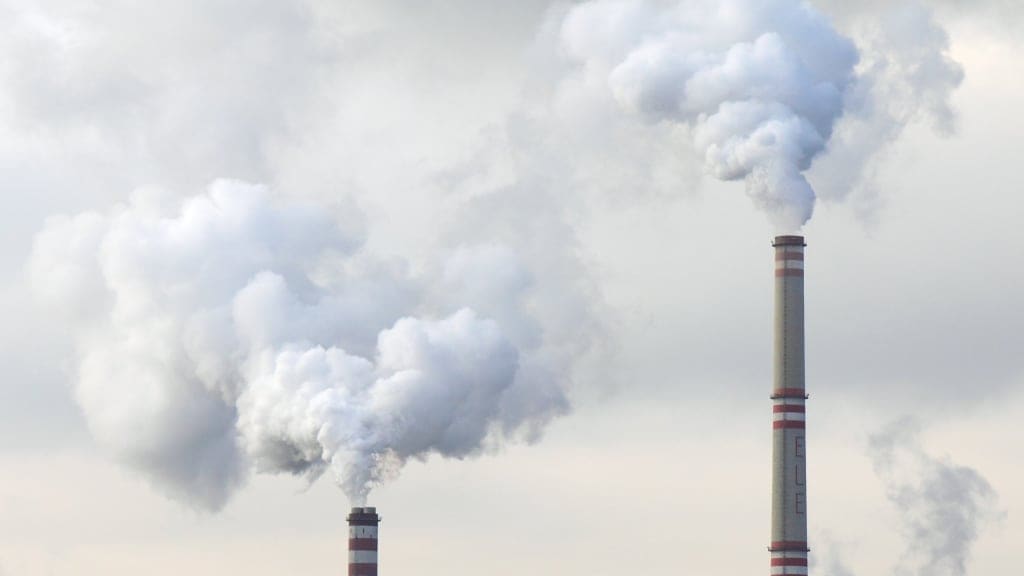Divestment from fossil fuels and climate change
Climate Change and the Elimination of Fossil Fuels

Harvard University President Larry Bacow announced intentions to phase out investments in oil, gas, and coal on September 9, 2021. Pressure from the climate change movement is the main driver of such divestment. To be honest, the institution has been traveling down this road for more than ten years.
He asked academics, organizations, investors, and people to contribute to solving climate risk in his disclosure. Such opinions reflect a wave that is gaining traction. The effects of climate change have cost society and economies billions of dollars over the past ten or so years. As a result, companies are being scrutinized more for their direct and indirect roles. Just as an illustration, the United States loses roughly 1.5% per year and Canada up to 5% per year as a result of natural disasters brought on by climate change.
Companies in carbon-intensive industries have been urged to aggressively cut their carbon emissions as a result. Other institutions with stakes in these industries are currently divesting in an effort to support similar decarbonization efforts. Some people find Harvard's announcement to divest startling. Others feel it has long overdue. But more significantly, it denotes investors' renewed commitment to sustainability and to making more open disclosures about commercial activities that harm the environment.
The Reason for Divestments
Climate change has perhaps been the subject of the most divisive argument during the past two decades. But at this point, it is challenging to reject climate change and its detrimental effects on the economy and quality of life in general, especially for those who had previously been skeptics (oil and gas leaders). The irreversible effects are clear after years of unchecked carbon emissions, deforestation, and other variables. If emissions continue at their current rate, the 400 giga-tonnes (Gt) of CO2 budget that we now have will be used up in around eight years if we are to stay below the 1.5°C threshold set forth in the Paris Climate Agreement.
Nasa data shows what happens as a result of such actions:
Within the previous century, the average global temperature has increased by 2.12 degrees Fahrenheit.
Since 1993, the mass of the Antarctic and Greenland ice sheets has dropped by an average of 279 billion tons yearly.
There is evidence of glacial retreat in the Himalayas, Alps, Africa, Alaska, Rockies, and Andes.
substantially reducing the amount of snow in the Northern Hemisphere
Even though the temperature rose by two degrees Fahrenheit and the snow began to melt, it may not seem like much. This is due to the fact that it is the result of a significant rise in the heat that has collected on the planet. The disruption of weather patterns, climatic variability, and climate change are the results of this accumulating heat. As a result, severe weather phenomena like hurricanes, wildfires, and cold fronts are occurring more frequently and with greater intensity.
Climate change has effects on the corporate environment in addition to the environmental and social effects. a rise in severe weather occurrences
destroys inventory, machinery, and facilities
disrupts supply and manufacturing chains
disrupts the continuity of business
It impacts customers' capacity to make purchases.
Because of this, the effects of climate change are felt widely and deeply in all spheres of society. This is the reason that decarbonization activities are being pursued with more vigor at the moment.
Although there are other factors that drive sustainable development, climate change is a major driver. Initially, there were reservations that investments in sustainability come at the expense of revenues and growth. However, data suggests otherwise.
In another article I wrote, I explain how corporations are benefiting from ESG investing. One area where this is evident is the stock market. Over the last two years, ESG stocks have proven to be more resilient to bear market conditions. Additionally, they have outperformed the market.
An ESG approach provides businesses higher revenues and lower manufacturing costs. The rate of sustainable investments will rise as more companies come to grasp this. As businesses hold one another accountable, the rate of divestiture will increase along with it.
Institutions Divesting from Fossil Fuels
The institutions that have been divesting or taking a stance against carbon-intensive sectors have done so independently. However, the trend is catching on. Now known as corporate activism, it has become a powerful tool for facilitating decarbonization efforts.
Some of the institutions leading this charge include:
Endowments
Universities are some of the oldest and respectable institutions in the world. So, their opinions on matters such as climate risk justifiably have a big impact on societal accountability. But beyond this, universities also have significant investments in endowments that have stakes in the fossil fuel sector.
While Harvard is now the most notable university to divest, others have also done the same. Earlier this year, Columbia University announced its divestment with an endowment of $11.26 billion. In 2020, Brown did the same by halting all its investments in fossil fuel companies.
Global Asset Management
Large asset managers have a significant influence on the trajectory of investments in the world. They are one of the primary reasons for the increasing rate of ESG investment.
With close to $9 trillion of assets under management (AUM), BlackRock is the largest asset manager in the world. In April 2021, they indicated their plans to cut ties with companies that make 25% of profits from thermal coal. While it's not a complete exit, it's indicative of the direction asset managers are going.
Another notable mention is the Nordic asset manager Storebrand. In total, the institution has an AUM of $91 billion. They were the first major asset manager to divest from miners and oil produces in August 2020. They had a total divestment of $29.2 million from oil producers such as Chevron and ExxonMobil.
Pensions and Sovereign Wealth Funds
Led by Ireland, several countries have withdrawn their sovereign and pension funds from fossil fuel companies. To this effect, the president of Ireland assented to the Fossil Fuel Divestment Bill in 2018. The resolve of the bill was to divest the nation's holdings of $10.5 billion within five years.
Other notable nations to take such a step include Norway and Japan. The Norwegian Sovereign Wealth Fund of $1.3 trillion is the largest in the world. Such steps at a national level indicate the political goodwill for addressing climate change.
Impact of Divestments
The increased rate of divestment in various sectors is increasing the commitment and action in the fossil fuel industry towards decarbonization. But, more importantly, it's being accompanied by more discussions on addressing climate change. Over the last 10 years about $ 15 trillion have been divested from carbon intensive industries, and I anticipate this trend will accelerate.
The UN Climate Summit Glasgow is one robust platform that will continue to drive the climate agenda forward. This will bring global leaders and members of the private sector and capital markets together to agree on the future climate action plan. Among the key goals of COP26 is to continue creating the incentives for all parties, particularly (lets be frank here) the leading economies and business to act on the climate roadmap, thus keeping the good “climate momentum” up. This will see the Paris Rulebook further formalized, moving towards a “painful operationalization” of the Paris Agreement, setting the stage to potentially reaching global net-zero emissions by 2050.
About the Creator
Enjoyed the story? Support the Creator.
Subscribe for free to receive all their stories in your feed.






Comments
There are no comments for this story
Be the first to respond and start the conversation.